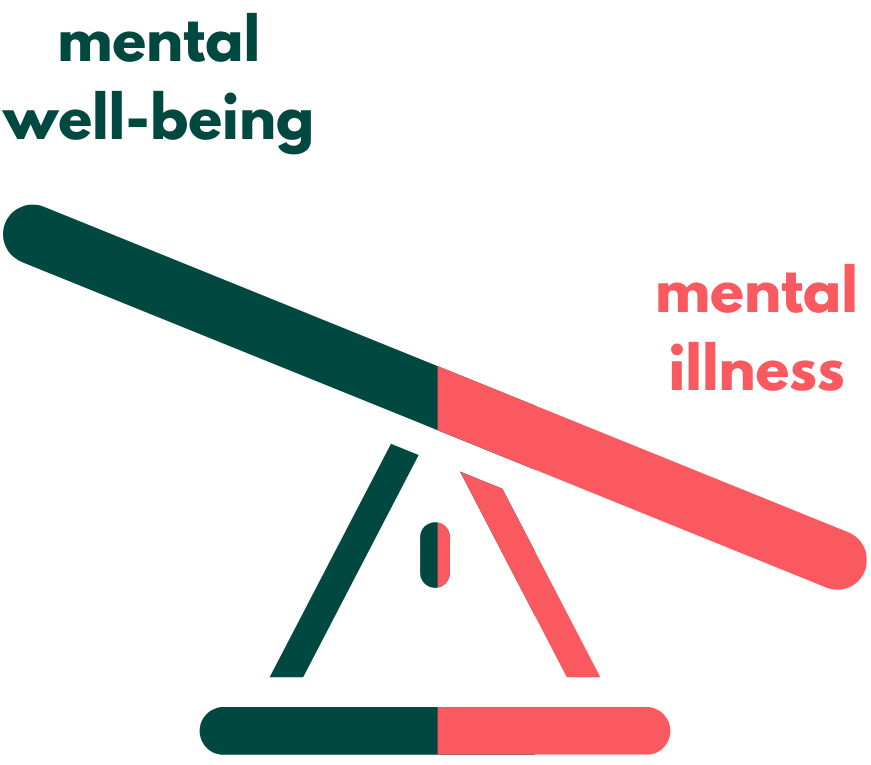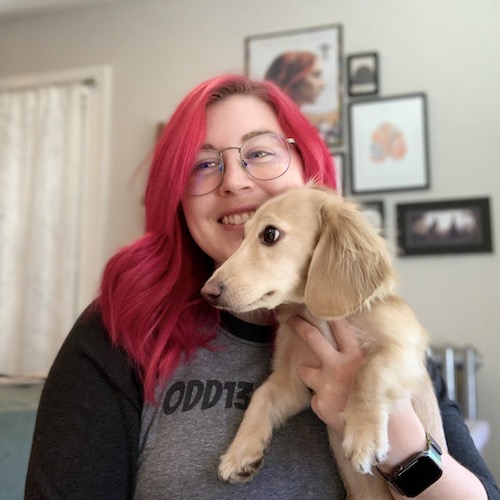We partnered with Mind, Body, Thrive Lifestyle to bring a 4-part series on self-care in veterinary medicine and how veterinary professionals can practice better self-care in their daily lives.
Obviously, this won’t be an exhaustive guide. And, if you’re suffering and having a mental health crisis, please reach out to a professional.
Below, we broke down each of the sessions with some quick take-aways:
1. Physical Well-Being
What is physical well-being?
When people think of this, they often think of the fitness influencers running on treadmills and wearing their perfect Lululemon fits.
But, that’s not the reality (even for those people) and it’s more of a holistic practice with 4 key areas:

Sleep:
Sleep is the foundation to all of this. Out of all four sections, this seems to be the first people cut, but it should be the very last thing you neglect! You can’t get up early if you go to sleep late. Work on your sleep schedule and find ways to unplug and truly sleep well & get your zzz’s 😴
Activity:
Cardio or being a gym rat is not for everyone. Find ways to stay active that fit your lifestyle. Something as simple as taking a “hot girl walk” everyday or something as intense as a boxing class can help stimulate those endorphins.
It’s all about your comfortability level and creating a habit that you can stick to. Then from here, it's rinse & repeat!
Nutrition:
We’re not saying you need to magically become someone who meal preps. Especially if you’re someone whose pet eats better than them (same, tbh).
But, you can always do something throughout the day, even if it’s something as simple as drinking more water.
You can do something each day to improve your nutrition, regardless of your starting point.
Stress:
Stress makes us sleep less, move less, and eat worse — which is why it’s the final piece to the physical self-care puzzle. When we become stressed, we are focusing most of our energy on controlling our mind, and focus less on controlling our environment & physical self.
How do you prioritize physical well-being?
In a field where we tend to give everything to our patients and clients, it’s hard to give when there’s nothing left.
That’s when burnout sets in.
First, you must recognize that, and be able to focus on yourself first.
Then, work on accountability.
It’s very easy to let yourself off the hook, but others won’t be as easy on you.
Whether it’s through a virtual accountability group (like Anna has), an in-person friend, or a text from your family member or friend, find someone who will help hold you accountable.
It can also be a great outlet for the days you don’t feel motivated.
There can be a lot of power in people coming together and brainstorming, giving a pep talk, or troubleshooting how to get through a rough patch. This is why building a community is so important.
This takes vulnerability, but it’ll make you that much more successful with your goals.
And, on the flip side, don’t compare your journey to others on social media or a friend who started their journey before you. Everyone has their own pace and trajectory — focus on that mindset shift, and make yourself and your health your number one priority.
Want more tips? Watch the full recording below:
3. Mental Well-Being
What is mental well-being?
Many people often think about mental well-being as two distinct states: illness and wellness.

They either feel well or they feel ill.
But, in reality it’s much more of a spectrum.

Often, we think of “mental illness” as always being in the crisis-state. And, we often wait until we’re in that state to seek help.
We tend to be reactive about our mental well-being, instead of proactive.
But, living mostly in the “surviving” state is also detrimental to you and your well-being.
Once we can unlock the “thriving” part, that’s when we can really start living well and treating ourselves and others better.
What does mental well-being look like?
Asking for help
Don’t wait until you’re in crisis-mode to ask for help.
When you’re in that mode, you’ll often be exhausted and won’t have the energy to do the due diligence you need to find the right person to talk to.
Therapy can be good for everyone, at every state of well-being.
And, you shouldn’t just go to the first therapist you find. Just like how there's not so great veterinary practices out there, there’s also not so great therapists.
It’s important to shop around and find someone who fits your needs and you feel comfortable with.
If you’re not in the financial situation to see a therapist, even having a third-party you trust that you can get feedback from is extremely helpful.
Change how you think about productivity
Especially for us in vet med, we often see our productivity as our worth. If we do not produce as much, we are not as worthy of rest.
The truth is: that’s not the case.
We are worthy regardless of output.
Rest is productive.
Put that on a sticky note. Make it your phone background. Whatever you need to do to remember it.
Rest is productive.
If we do not rest, we will not be able to do our best work. We will not be able to enjoy our life outside of work. We will start to burnout.
In order to speed up and do great work, we must, sometimes, simply slow down and do *absolutely nothing.*
Start building this into your calendar. And refuse to feel guilty about it. Seriously.
You worked hard to get your certifications, your degrees, and your experience — you shouldn’t waste all that work by burning yourself out to the point you leave the profession.
Work on self-compassion
As practitioners, it’s not “if” we make a mistake, it’s when.
Medicine is not perfect, we’ll all make mistakes, we’re all human.
“Could I have done things differently?”
“What if I tried that instead?”
“Why did I do that?”
Imagine if you had a friend that came to you and told you they made that mistake. What would you say to them?
“You’re only human.”
“You didn’t intend to make a mistake.”
“Don’t be so hard on yourself.”
You’d be kind and supportive to them. So, you should treat yourself that same way.
Want more tips? Watch the full recording below:
4. Emotional Well-Being
What is emotional well-being?
Vet med is very emotionally taxing. We see a lot of great things, but we also see a lot of hard things.
Often, we’ll come straight out of a euthanasia and have to jump to the next case, with no time to truly process and deal with it.
And, over time, those issues can eventually lead to a boiling point.
To truly be emotionally well, we must learn to recognize and allow ourselves to process those emotions — especially when dealing with grief.
What does emotional-well being look like?
Find a source of joy
In times of crisis or stress, you should find something that centers you.
Think of engaging your senses and shutting out the rest of the world.
It may be a favorite playlist, the smell of your favorite flower or perfume, basking in the sun for a few moments.
Something that fills your soul.
Allow yourself to fully come inward and be present in that moment.
Obviously, this won't be a magic switch that fixes everything, but it’ll buffer the blow and help you center and recognize what/how you’re feeling.
Set healthy boundaries
We’re constantly saying “yes” in vet med.
“Yes, I can take that extra case”
“Yes, I can stay late”
“Yes, I can pick up that shift”
And, we can feel guilty about saying no.
But, to protect our peace and emotional well-being, we must learn to set boundaries — both physical and mental.
- Physical: listening to your body, personal space, etc.
- Mental: taking care of your mind and soul
And, it’ll suck at first.
You’ll not only have to learn how to say no to others, but also to yourself.
But, once you do it, you’ll start having more control over your life and wellness.
Remember: when you say “yes” to something, think about what you’re saying “no” to.
Want more tips? Watch the full recording below:








2. Social Well-Being
@daniellesnout
What is social well-being?
The foundation of social well-being is realizing that social media is a tool for your life, and not your whole life.
It’s important to have a clear delineation between the two and know that going outside and not getting sucked into the doomscroll is important to protecting your well-being.
What’s the importance of social well-being?
When it comes to vet med, there’s so many pieces to balance and that we need to perform really well.
Our jobs can be taxing and we must find balance between perfectionism and living in the moment.
How do you practice social well-being?
In vet med, there’s often a lot of things we’re having to balance, and there's pressure that we need to do everything exceptionally well.
And that perfectionism we all have inside of us can bleed over into our social interactions, especially on social media.
There are a lot of positives about social media; finding like-minded peers, building a business or passion project, receiving support during a difficult time.
But, it can also bring out our worst tendencies, our negativity biases, and make us feel more isolated — which is the opposite of its intended purpose!
So, how can we balance our interactions to protect our well-being?
Act with intention
Always have a goal in mind or intention for your social interactions, especially online.
We’ve all started disassociated while doomscrolling and then all of the sudden we’ve not had a meaningful interaction for over an hour. Yikes.
Being mindful of how and why you’re using social media can help you become more present in your daily life, and bring the control back to you.
Each time you log on, have an intention. Do you want to connect with like-minded people? Learn something new? Or just simply laugh at memes?
Set that intention and the second you feel yourself drifting, close the app.
And, for those who are content creators in vet med, those goals are even more important. If you’re just wanting to network, you don’t have to worry about creating multiple, perfect posts each day. Maybe just spend 15 minutes commenting and networking.
This phenomenon of disassociating on social media also bleeds over to our IRL interactions. We’re so used to doing it on social media, we can often catch ourselves doing it in work conversations as well.
Especially when you have disagreements with coworkers or clients, being there mentally may not feel comfortable in the moment, but can be really helpful for future relationships with them.
Separate work and personal life
You can have social life in vet med, but you are more than just your job.
Read that again. Maybe read it 5 more times.
Because we are a profession of perfectionists, it also means we spend a lot of time thinking about our work, and it can slowly become our only identity.
You are a more holistic person than that, and you deserve the ability to rest and leave this headspace when you’re not on the clock and scrubbed in.
Don’t forget the “social” in social media
It’s literally in the name. Yet, many of us aimlessly scroll and then wonder why no one likes our posts, then we get stressed about no one liking it, then we think we’re a failure, and the spiral starts.
If you want people to be social with you social media, you have to reciprocate.
You need to be putting in some level of human interaction, sharing other people’s content, and building authentic relationships — that’s just good networking and “human-ing.”
Showing up authentically online can feel vulnerable, but it can also be a way to find others like you. The vast majority of people online will be supportive.
And, if there’s a troll? Just remember:
Don’t be shy about setting boundaries.
Don’t be afraid to take breaks
It will always be there tomorrow.
If you’re worried about getting shadowbanned, trust us when we say that not even the “social media experts” really understand these algorithms. And, they change almost every day.
What you can do is show up when it makes sense for you, and take a break when it doesn’t.
If you’re really worried, be transparent.
Tell people you need a break.
Being a human online is better than trying to be the perfect version of yourself.
If you’re still worried about it, or you rely on social media for your clients/business, you can use post schedulers (like Planoly & Hootsuite).
Be conscious of negativity bias
It’s incredibly important to remember that with trolls and bullying, 99% of the time that has nothing to do with you and everything to do with the person who is leaving the comment.
Of course, sometimes negative reviews on a product or service can have some truth in them and you should be open to that criticism, but you should not take what people say personally.
Internalize the valid feedback, put a plan in action, apologize, and move on.
Focus more on what social media can do to attract the right people to you and don’t get too bogged down in the panic of one person not liking what you have to say.
Want more tips? Watch the full recording below: